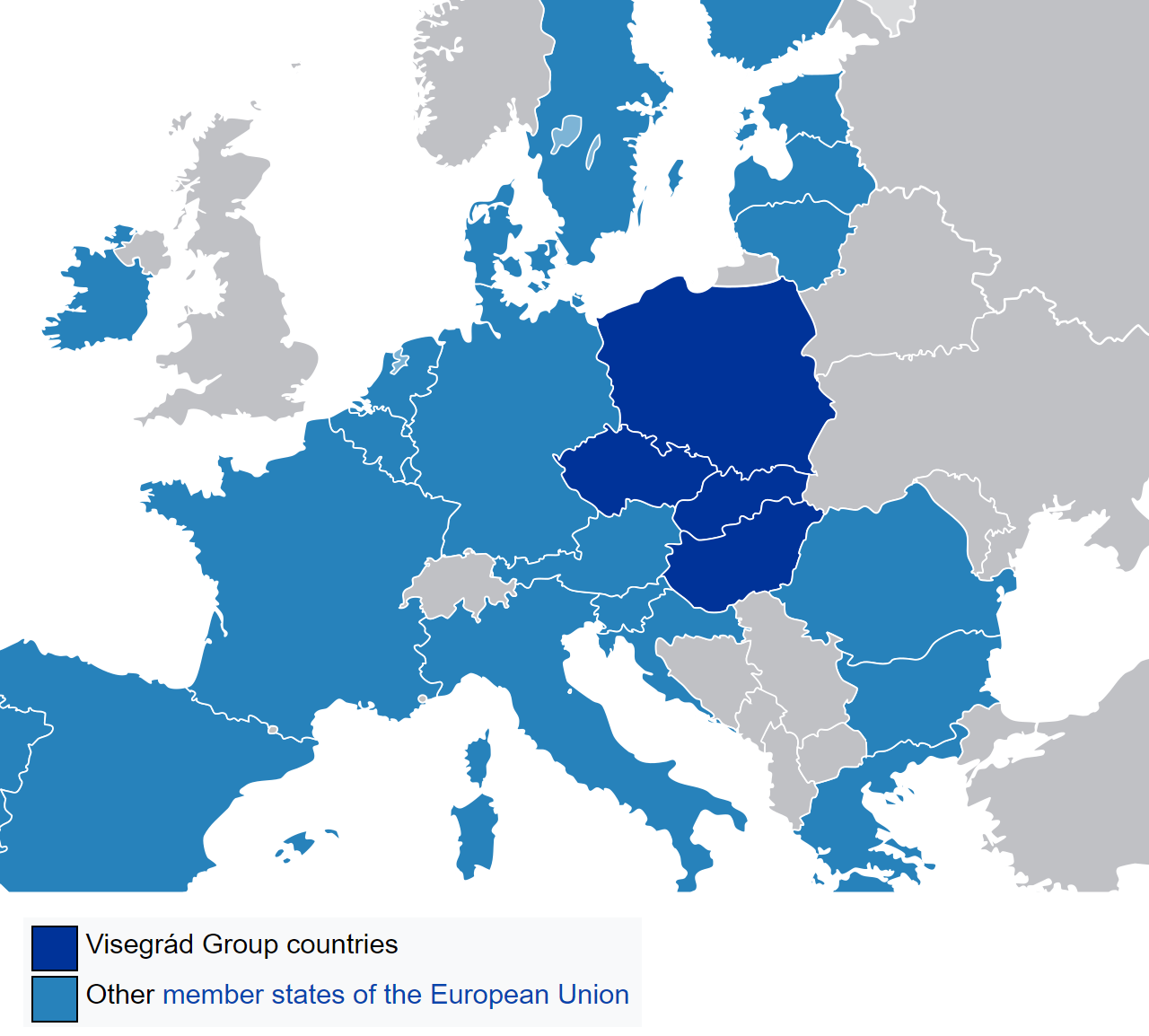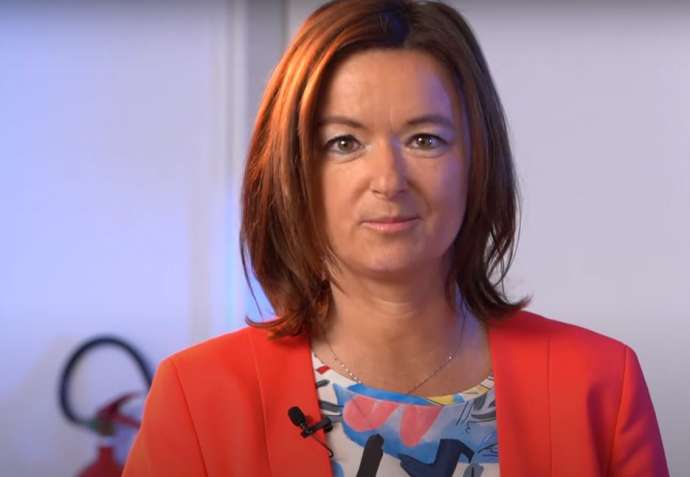STA, 30 May 2022 - Tanja Fajon, candidate for foreign minister, announced that Slovenia would return to the core EU countries as she singled out commitment to shared values and the rule of law, and a distancing from the Visegrad Group, in her presentation to the parliamentary Foreign Policy Committee on Monday, which endorsed her candidacy.
The EU will remain at the core of Slovenia's foreign policy, which is particularly important in an era of growing polarisation between democratic and authoritarian regimes, she said.
"I realise that we face hard work to restore credibility and the country's unfortunately eroded reputation," she said.
She plans to intensely strengthen friendly ties and alliances with key partners in the EU, particularly Germany, France and Italy, while moving away from the Visegrad group.

Map: Wikimedia CrazyPhunk CC-by-0
Drawing on the constitutional principles of the culture of peace, non-violence and peaceful resolution of disputes, Slovenia should be recognised as "a country that respects human rights, and is committed to democracy, the rule of law, media freedom and EU values," she said, highlighting Germany and Benelux countries as role models.
EU enlargement to the Western Balkans is in Slovenia's interest and remains one of the strategic priorities, she said, announcing the appointment of a special envoy for issues related to the Western Balkans.
Fajon described migrations as an important challenge for the EU and said the EU must be capable of protecting its borders, whereby migration pressure "may no longer be a reason for destabilisation and internal divisions, or even a tool in the hands of regional powers."
"We need a comprehensive asylum, migration and integration policy that will facilitate an appropriate response to the pressure of irregular migration and make regulated immigration easier," according to her.
Turning to relations with Croatia, a major focus of the country's foreign policy, Fajon said she would consistently uphold the commitment that the border arbitration award must be respected.
This marks a break with the policy pursued by the outgoing government, which has put arbitration on the back burner in favour of reaching a diplomatic agreement that would be in the spirit of the arbitral award.
Under her watch, Slovenia will support Croatia's membership of the eurozone and OECD if it meets the membership criteria, and the expansion of the Schengen zone to Croatia, Bulgaria and Romania.
However, expansion of the Schengen zone will be "severely jeopardised" until the Schengen rules are reformed.
As for transatlantic relations, Fajon said they remained "the backbone of Europe's security architecture".
"Membership of NATO is the basis on which to upgrade relations and strategic dialogue with the United States, which are very important for us," she said, adding that the Western Balkans was an area of shared interest where Slovenia is recognised by the US as "an expert and a partner."
As for the Ukraine war and relations with Russia, Fajon condemned Russia's invasion "in the strongest terms" but said dialogue was the only way. "Permanent peace and stability in Europe, no matter how remote it may seem at this moment, cannot be achieved without dialogue and without Russia."
She said Slovenia needed to shift from support of Ukraine in name only to concrete actions by helping mitigate the humanitarian and financial crisis in Ukraine and participating in preparations for the post-conflict restoration of the country.
Fajon also mentioned relations with China when she said Slovenia's policy will abide by the one-China principle while strengthening relations with Taipei.
She said Asia held great potential for Slovenian business and relations with India should be deepened.
Fajon is in favour of the recognition of Palestine's independence, but said Slovenia needed to do this in concert with other EU countries.
She will support the formation of a coordinated foreign policy that will "take into account the right of Palestinians to their own country and Israel's right to security."
In general, Fajon praised Anže Logar, her predecessor, but said the country's foreign policy had often been overshadowed by Prime Minister Janez Janša's solo actions and the disputes he had engaged in on Twitter.







